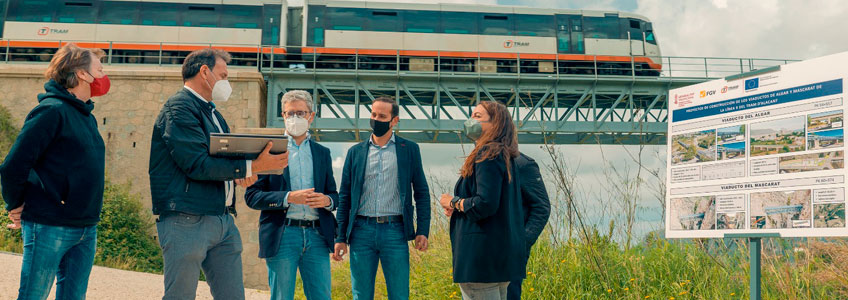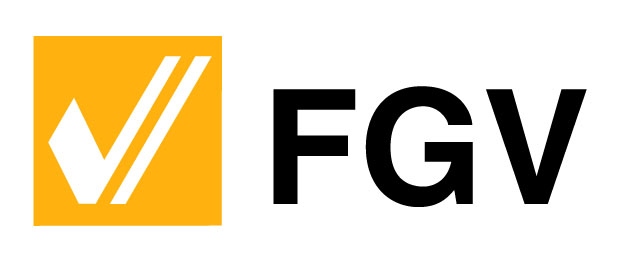- The Minister Arcadi España stresses that this work is “essential” to complete the modernisation plan on Line 9 (Benidorm-Dénia) in 2023
- The budget amounts to 9,857,534 euros, including VAT, and the work has an implementation period of 12 months
Ferrocarrils de la Generalitat Valenciana (FGV) has awarded the works on the new Quisi viaduct in Benissa, worth 9,857,534 euros, VAT included, located along the TRAM d’Alacant Line 9 route (Benidorm-Dénia), to the joint venture FCC Construcción S.A. – CHM Obras e Infraestructuras S.A.
This proceeding, which has a completion period of 12 months from the signing of the contract, will allow to build a new viaduct near to the current one, also located on the Quisi ravine, downstream to the existing viaduct, on a slant compared to the old one and with a length of 370 metres.
The Minister of Territorial Policy, Public Works and Mobility, Arcadi España, stressed that “this work is essential to move forward according to schedule and complete the modernisation plan on the whole of Line 9 in 2023, connecting Benidorm to Denia”.
What is more, the Minister Arcadi España reiterated that this proceeding will be carried out “with consensus and sensitivity” so that it has “the minimum possible impact on the landscape, while guaranteeing a quality railway service, which is essential in this area of the province of Alicante”.
The current Quisi viaduct was built between 1913 and 1915, as part of the line linking Alicante and Dénia. The refurbishment work carried out by FGV on this section has enabled it to remain open to the current diesel trains.
However, it was necessary to consider the construction of a new bypass to allow the new hybrid trains (electric-diesel) to run, incorporated by FGV as part of the modernisation plan for this line.
The investments made and planned by the Generalitat between Benidorm and Dénia include the renovation of track, construction of viaducts, bridges and slopes, improvements in rolling stock and the improvement of safety, communications and energy facilities.
The aim of these investments is to be able to maintain the development, guaranteeing the quality of the service and, in turn, reach the quality standards of the rest of the FGV network in Alicante.
This proceeding, like the rest of the works carried out on Line 9, is likely to be co-financed by the European Union.


